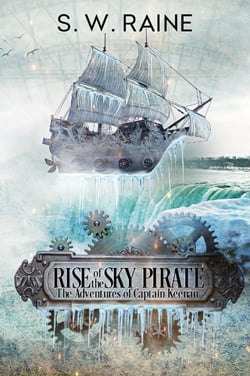The Celwyn Newsletter Issue 11
In this issue: MWA news, Celwyn news, all about pod-casts, the Author Debates, and interviews with:
—S. W. Raine, urban fantasy writer
—4 Horsemen Publications CEO Erika Lange
—Beverly from NYC, volunteer
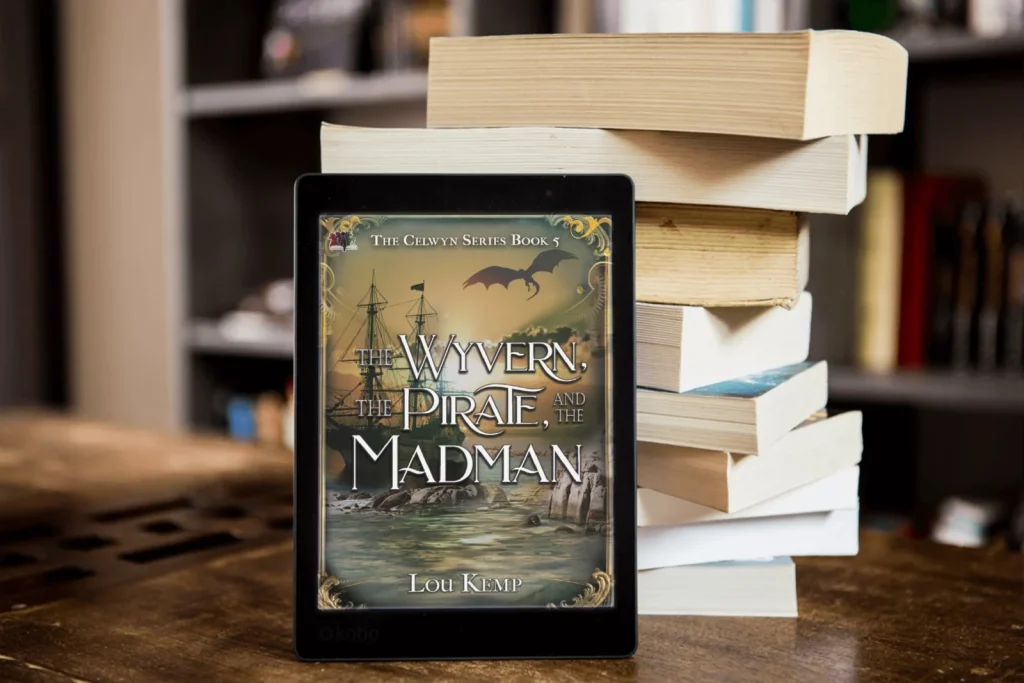
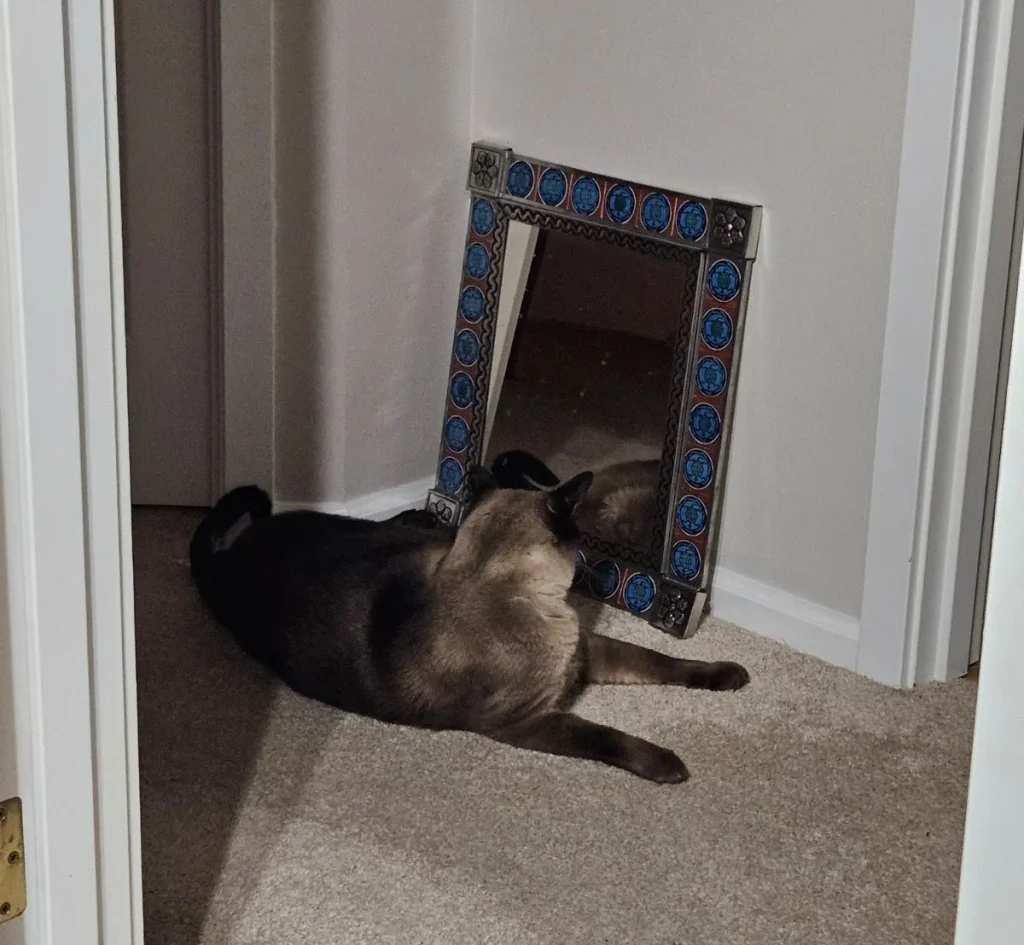
Celwyn’s Cats: Mirror Mirror on the wall, my name is Mr. Handsome.
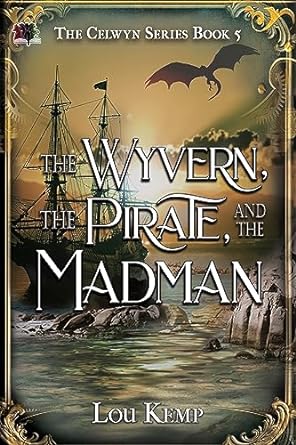
The Wyvern, the Pirate, and the Madman
Book 5 of the Celwyn series is here.
It is 1870, and the immortal magician Celwyn, the automat Professor Xiau Kang, and Bartholomew, a scientist and widower from Sudan, set out on another adventure.
The adventurers leave the North Sea aboard Captain Nemo’s Nautilus, chasing a pirate ship and Captain Dearing. The pirates have kidnapped friend and vampire Simone Redifer, and they have stolen something precious from Captain Nemo.
Meanwhile, in Prague a dastardly murder forces Professor Kang back home.
The Wyvern, the Pirate, and the Madman is a steampunk fantasy filled with murder, magic, and adventure.
On Amazon
Interview with Erika Lange CEO
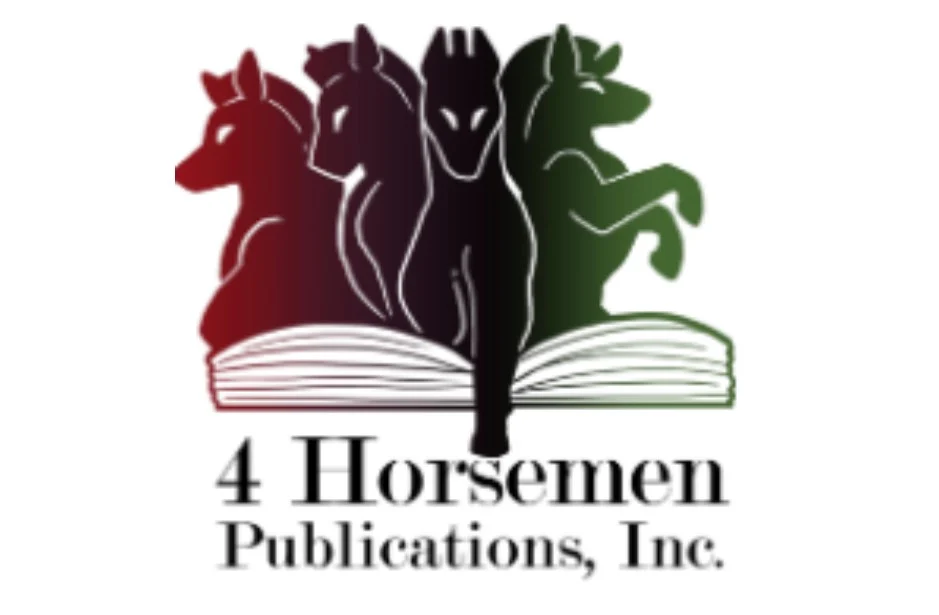
A different kind of interview—-with a book publisher.
Bio: 4 Horsemen Publications emerged in response to a publishing world that doesn’t give promising authors a shot at the big-time. Our favorite works are ones from authors who aren’t afraid to challenge themselves–-like you! We look for strong writing and engaging storytelling to create a quality book series for readers across the world. We are comprised of a group of dedicated professionals who want to help authors find their voice in the literary world. As a women-owned business, we publish, encourage, and support own voices and diverse works for all genres. We look forward to bringing the publishing apocalypse.
Visit 4 Horsemen
1. Tell us about the beginning of 4 Horsemen? Trials and successes.
It began in 2020 with three of us and the idea that we could do publishing better than the way it was being done by most large traditional publishers. Our motto is “Bringing the Publishing Apocalypse.” It has been a bumpy road, as is any new business, but I have always had the motto of being radically transparent and honest with my authors. We are partners in this. The success of 4HP depends on the success of my authors. We are a team and through everything I never lose sight of that.
2. In your opinion, what will the future of publishing look like.
I believe that more smaller traditional and hybrid presses will help to continue to make a change in the publishing world. The older “Big 5,” as people like to call them, are not changing rapidly enough with the times. They do not act like partners with their authors so they do not set them up for success.
3. In this issue, we cover the debate between formally educated writers and self-taught writers. On the question of which does better commercially, do you have an opinion? Also, do you think formally educated writers have the same, or better, an imagination than those who break the rules of writing?
I think any author can be successful if they never stop learning. It is important for authors to know that writing, while appearing to be a solitary endeavor, is actually a team effort. Editors and beta-readers will be your best friends, even if they piss you off sometimes. An author once told me when he gets his edits back the first thing he does is send the editor a thank you note before opening them, then have a stiff drink, and then start revising the next day. As long as you work on your craft, you can be amazing.
4. Which genres sell the most with 4 Horsemen, and why?
We are very lucky that we sell across the genres. I think this is because we allow our authors to tell the stories they want to tell. We do not simply say “Romance is selling!” and try to only do that.
5 Which cross-genres work best at 4 Horsemen?
I do not think there is a best cross-genre. I instead love seeing how our authors find the best ways to tell the most interesting stories. I encourage authors everywhere to do this. A reader doesn’t usually know what they are looking for until they see it exists.
6. How much do you put yourself in the shoes of the reader when choosing whether or not to add an author to 4 Horsemen’s roster?
I start with is the author able to write well and tell a good story. I do not have much that we say “no” to because, like readers, I am always excited to find a new voice.
7. Do you hear anything from the readers on where they want a particular series to go? Do you get feedback from disgruntled readers about cliff hangers in a series?
Readers hate cliff hangers unless they know the next book is coming. I think the feedback goes to the author more than to us as a publisher. However, when I do meet readers at live events, I love seeing how they react to our books. I always want them to find their new favorite.
8. What is your opinion of Ai and how will 4 Horsemen approach it?
AI writing is totally off limits just as ghost writing is for us. The unfortunate thing about AI is in order to “generate” work it has to scrape the internet for similar work to mimic—-this means it is stealing art from others. I am hoping at some point this is not how AI approaches things and that AI is clearly labeled so we can continue to avoid it.
9. What do you think new authors should decide before they begin their book? Should it be who they are writing for (themselves or their audience)? Do you have other criteria they should consider?
I think the best advice for authors is to WRITE! Also do not edit yourself as you go. Get it all on the paper and then go back through. Stories should pull the reader in and make them want to stay buckled up for the whole ride. So when you write, you will have a whole iceberg in your brain, make sure enough of it hits the page so your readers are engaged. Most important, write your story the way you want to tell it. Then find a brilliant editor to make your words sing!
10. Could we have a preview/synopsis one of 4 Horsemen’s new series?
There are a few coming up but we are excited about some new rapid releases that you will be able to get a three book series over three months. Our newsletter and social media has links to all of the excitement that is coming. https://l.instagram.com/?u=http%3A%2F%2Flinktr.ee%2F4horseme…
11. What trends in genres of books do you see on the horizon? Will Romance continue to dominate, or?
Romance readers tend to go through 5-10 books a week. Most other readerships are not that fast. I think however, romance readers would love different takes, different stories and a cast of characters they are not used to. They want happy endings, or at least happy for now, but the sky is the limit on everything else.
Podcasts: Some favorites from authors and other podcasters.
Definition of podcast: a digital audio file made available on the internet for downloading to a computer or mobile device, typically available as a series, new installments of which can be received by subscribers automatically or by visiting the site.
Here are some opinions from authors and others closely related to the publishing industry:
JOURNEYS IN ACTIVE FANDOM
There are a lot of fans out there, but how did they, and more importantly, how can you, turn your passion into something creative? Join us each week as we meet fans who have moved from being consumers to creators. If your interests spring from speculative fiction and related fandoms, join us; whether you’re a model builder, cosplayer, artist, writer, fan-publisher, or club organizer, you’ll find something of interest with The Halfling and the Spaceman.
From the Halfling and the Spaceman https://halflingandspaceman.com/
Kemper Donovan’s All About Agatha podcast.
https://podcasts.apple.com/us/podcast/all-about-agatha-chris…
All About Agatha is a podcast all about Agatha Christie: the Queen of Crime, a real-life Dame of the British Empire and author of sixty-six mystery novels that spanned the Twentieth Century, defining a genre. For five years, Catherine Brobeck and Kemper Donovan revisited these novels in publication order, ranking them according to pre-set criteria (plot, character, etc.). Tragically, Catherine Brobeck passed away at the end of 2021. Since then, Kemper has completed the podcast’s ranking project, and now contents himself with interviewing like-minded obsessives, dissecting new adaptations, and trying to solve the age-old mystery of why Christie–and Christie alone–endures as powerfully as she does. There is always something to talk about where Christie is concerned!
Reading Women Podcast link:
https://www.readingwomenpodcast.com/
“I would venture to guess that Anon, who wrote so many poems without signing them, was often a woman.” – Virginia Woolf
If you look back over the history of literary awards, few women have received top awards. Only sixteen women have won the Nobel Prize for Literature, and only thirty-one have won the Pulitzer Prize. Reading Women reclaims the bookshelf by interviewing authors and reviewing books by or about women of a wide variety of backgrounds and experiences.
Partners in Crime Podcast
I will say that we are a storytelling podcast – not an interview podcast. We feature mysteries in two ways. Our main M2D4 stories are filled through a call process that happens about 8 months before the start of the season. Stories are featured as a podcast episode and collected into a e-book / print anthology. The next call will go out May/June of 2024.
Our second option is a Toe Tag. We do readings of first chapters along with full book reviews that drop as a podcast bonus episode. These are sold through Partner In Crimes Virtual Book Tours. Here is their link: https://partnersincrimetours.com/
Tina Wolff, host
The My Imaginary Friends podcast is a behind the scenes look at the journey of a working author navigating traditional and self-publishing. Fantasy and paranormal romance author Leslye Penelope shares insights on the writing life, creativity, inspiration, and this week’s best thing. Perfect for readers and writers alike!
https://lpenelope.com/podcast/
Leslye Penelope, host
Molly Southgate hosts Read Between the Lines. She interviews authors and discusses the writing process with them, not just their latest book. https://podcasts.apple.com/us/podcast/read-between-the-lines…
Jesse Jackson hosts Set Lusting Bruce. He interviews people about their love of music and, being a big reader himself, often has authors on. https://podcasts.apple.com/us/podcast/set-lusting-bruce-the-…
Steve and Chip host Too Much Scrolling. They are avid readers and often treat the show as a book club with their listeners. They also love to interview authors. https://toomuchscrolling.podbean.com/
I started “The Memoir Channel” because truth is indeed stranger than fiction and ofttimes more inspiring. True stories can uplift us, empower us, expand us, heal us, and hopefully, bridge the gap between us. If we step into another’s shoes for a few pages, maybe we can shift our prejudices, soften our judgments, and gain a deeper understanding of others and ourselves. The Memoir Channel aims to explore and support the writers of true-life. — Niki Smart stories www.youtube.com/@memoirchannel
The Paperback Podcast by Pagan Malcolm: This podcast has stopped running, but it still contains useful knowledge of authorship, publishing, and even navigating mindset shifts.
The Creative Penn Podcast by Joanna Penn: Joanna Penn is well-known in the author world, and her podcast is great for writers of all stages. There are lots of episodes about writing, publishing, marketing, and entrepreneurship.
The Author Revolution Podcast by Carissa Andrews: Carissa Andrews is an amazing force to learn from in the author world. She’s all about manifesting your millionaire author destiny. And while that might sound a little woo-woo, it’s all about the mindset shift for the better, and it’s backed by science! Her podcast also has episodes on writing conferences, entrepreneurship, marketing, and more.
S. W. Raine, author of The Elements Trilogy
My favorite podcast is the Story Darlings. I’ve been interviewed by them several times and they are so much fun. Another good podcast is the Freya’s Fairytales podcast. I was recently on that one and she was really wonderful, sending me a little gift afterward for being a guest! https://storydarlings.com/podcast/
Ty Carlson, author of the Dadirri saga books
The one podcaster I know of is Marsha Casper Cook’s Podcast called Michigan Avenue Media Podcast www.michiganavenuemedia.com. I hope to do one with her soon. Krysten Lindsay Hager often teams up with Marsha as well. I’m checking with one other person, and I’ll let you know if she does them.
Tricia La Rochelle, author of the Sara Browne series
Words & Pictures Podcast
Hi, I’m DJ Bowman-Smith, and I host the Words & Pictures Podcast. I started the podcast about a year and a half ago to reach out to other writers and creatives in the publishing world. I interview writers, artists and book cover designers. Listeners like me are fascinated by all the stories and insights from self-published and trad authors at all stages of creativity – beginners and experienced. All genres are welcome. This year, I will be slotting in some solo episodes to share my own knowledge and experience of the writing life.
Words & Pictures Podcast | a podcast by D J Bowman-Smith (podbean.com)
The Picky Bookworm podcast is a show that seeks to highlight and promote authors through weekly chats. Each chat features a different area of the writing process, and helps readers find new authors and books for their collections.
Along with weekly chats, Pamela also features occasional “book chats,” where she and a guest get together and discuss a specific book. These book chats are randomly scattered through the podcast schedule, and offer a fun way to find a new book or enjoy someone else’s reading experience.
You can find The Picky Bookworm on most major podcast directories, as well as Pamela’s website, thepickybookworm.com
Mysteries to Die For is a podcast where we combine storytelling with original music to put you at the heart of mystery. All of our stories are structured for you to beat the detective to the solution. Get ready to dive in. Happy hunting, detectives.
https://podcasts.apple.com/us/podcast/mysteries-to-die-for/i…
Recommended by assorted members of the Pacific Northwest MWA
Interview with Urban Fantasy Writer S. W. Raine
Bio:
Raine is Canadian, born and raised, and constantly moved between Ontario and Quebec with her military family. She moved to Michigan, USA, in 2004, where she currently still resides with her husband and son. She has always had a vivid imagination and loved reading and writing from a very young age. She published her debut steampunk adventure in 2020.
Link to the book on Amazon
Does your own reading stay within your writing genre, or do you have a different genre for yourself (and why)?
I’m a mood reader, meaning my mood dictates what I’ll read next. But I read a wide variety of genres, so it’s not uncommon for me to read some thrillers, sci-fi, or even romance, despite not being a big romance fan. But steampunk and urban fantasy are my favorite books to read, which is why I became a steampunk and urban fantasy author to begin with.
When you do research, do you have (alive) sources that you interview in person or by other means? Do you have a sample of what you have discovered that was especially interesting?
Sometimes! My mum is actually my best resource when it comes to military (in my steampunk novels) and law-related things (in my urban fantasy novels) because she was a military court reporter. I also hired a Black Jamaican sensitivity reader to help make sure one of my steampunk characters was accurate. Other than that, I do extensive research online or in books. I was particularly proud when I’d done a bunch of research on jet ejections and parachutes, and a beta reader, who’d worked with those in the military, was especially impressed with the accuracy.
How much do you put yourself in the shoes of the reader? Do you hear anything from them on where they want the series to go?
I pay attention to the feedback I receive from readers. Not so much regarding the direction of a book or series, but moreso about what I can improve on. The best example is the reviews for my urban fantasy book, mentioning the slow pacing at the beginning. I took that feedback to heart and am currently fixing the pacing in the next one to not repeat the same mistake.
Rise of Sky Pilot, Raine’s latest
Straying from his noble dreams, Benedict joins a band of rogues for an easy mercenary job. But when the sole survivor of a sky pirate attack is found in the Atlantic, Benedict is thrust into a dangerous race against a poisonous alchemical threat set for the Great Lakes. Can Benedict foil the sky pirate’s plans and reclaim his dream life, or will he find new ambition?
The Author Debates: Formal Training as an Author, or Learn as You Go?
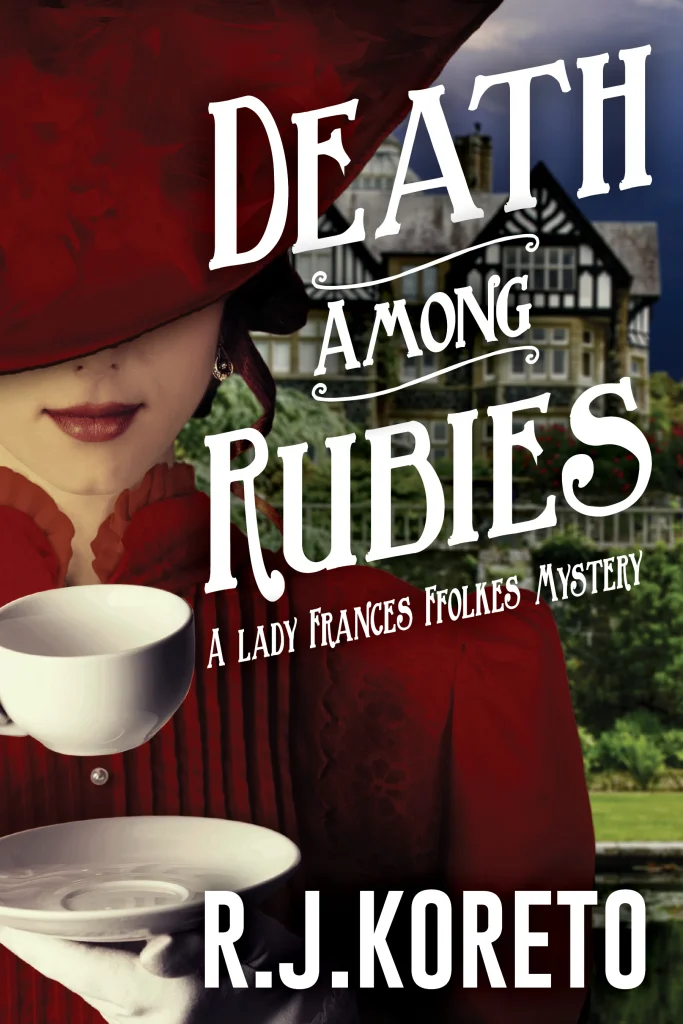
Richard Koreto
Is formal university or college training needed for someone who intends to be a successful writer?
In brief, no! What is needed a sense of curiosity and a willingness to read—a lot. I’ve known terrific writers with little formal education but never one who didn’t like to read.
Does a university degree in writing give an author a leg up on success, or stifle their creativity?
I have a degree in English. It gave me a leg up in the sense that it introduced me to writers I may not have read on my own. I’m thinking of Henry Fielding in particular: “Tom Jones” runs about 240,000 words and never gets boring. A formal education is not essential but it’s a big help.
Looking at the opposite, that formal education can stifle creativity, is ridiculous. You never lose anything by getting other people’s opinions or reading other works.
Does a lack of professionalism in their writing hurt a new writer? Does it take them longer to look professional without the formal training?
Oh—that’s a great word “professionalism.” Every Agatha Christie novel shows “professionalism,” a mastery of characterizations, plot and theme, even though she had virtually no formal training. There is an innate talent but it also comes from sensitive reading. I read books where characters disappear for no reason, where I realized I’m 1/3 the way through and nothing has happened. Those are not professional, and efforts like that will hurt a new writer. The problem isn’t a lack of formal education, but the inability to learn by reading. Yes, good teachers can help, but you have to make the effort yourself.
Does a lack of professionalism in their writing hurt a new writer? Does it take them longer to look professional without the formal training?
Basically, a manuscript needs to reflect an understanding of how a novel works. For example, do you have characters who are unnecessary in developing the plot? Are there scenes that fail to advance the story or clarify a protagonist’s motives? Training can help a lot, but if you’re disciplined, you can do it yourself. I take a close look at books my literary idols, such as Agatha Christie and Georges Simenon, and don’t just read them—I study them! What is the pacing? How many character are there? If you’re disciplined—a big if—you can get there on your own.
Does a great imagination balance a less than stellar delivery of the story? Can formal training fix both?
Yes. Imagination is great. But the greatest imagination isn’t going to get you anywhere if you can’t deliver a story. No one should be allowed to write a novel until they’ve read “Great Expectations.” Dickens had great imagination, but he really knew how to tell a story. I have been blessed with teachers and others who have told me when my books have gone off the rails and that I need to fix something.
How much do the publishing industry’s business practices affect a non-trained author’s success? Is the formal university training a match to the current publishing industry?
I read a LOT of self-published books. Many of them are talented but badly structured. Did these writers not take notes on how a novel is structured? I worked in publishing in the 1980s and knew a lot of talented editors who had the time and patience to work closely with writers. I don’t know if that’s still as common as it was. You don’t need formal training, but most of us need someone looking over our shoulder.
Is indie publishing a match to a formally trained author?
As I write this, I’m halfway through a really terrific self-published police procedural, Shitamachi Scam, by Michael Pronko. The author is not only talented, but he has clearly read a lot of great police procedurals and had the wit and humility to learn from them. He was a perfect match. Not everyone is.
Do agents favor formally trained authors?
Agents favor authors who produce well-written commercial fiction. Period.
Bio: R.J. Koreto is the author of the Lady Frances Ffolkes, Alice Roosevelt and Historic Homes mystery series. He has published stories in EQMM, AHMM and multiple anthologies. He’s also been a merchant seaman, textbook editor, magazine writer and award-winning financial journalist. R.J. grew up in New York City and graduated from Vassar College with a degree in English and Latin. He and his wife have two grown daughters and divide their time between Rockland County, N.Y., and Martha’s Vineyard, Mass.
In his latest book, Death Among Rubies:
Lady Frances Ffolkes finds more trouble than expected in this second cozy mystery from R. J. Koreto.
Lady Ffolkes is incensed when she finds out that her dear friends Gwendolyn and Thomasina have been subject to vicious threats. Promising to uncover their attacker, she travels with them to Kestrel’s Eyrie, the fabled estate belonging to Gwen’s family. But soon Frances faces an even greater problem, when Gwen’s father, a powerful diplomat, is stabbed to death with his prized ruby dagger.
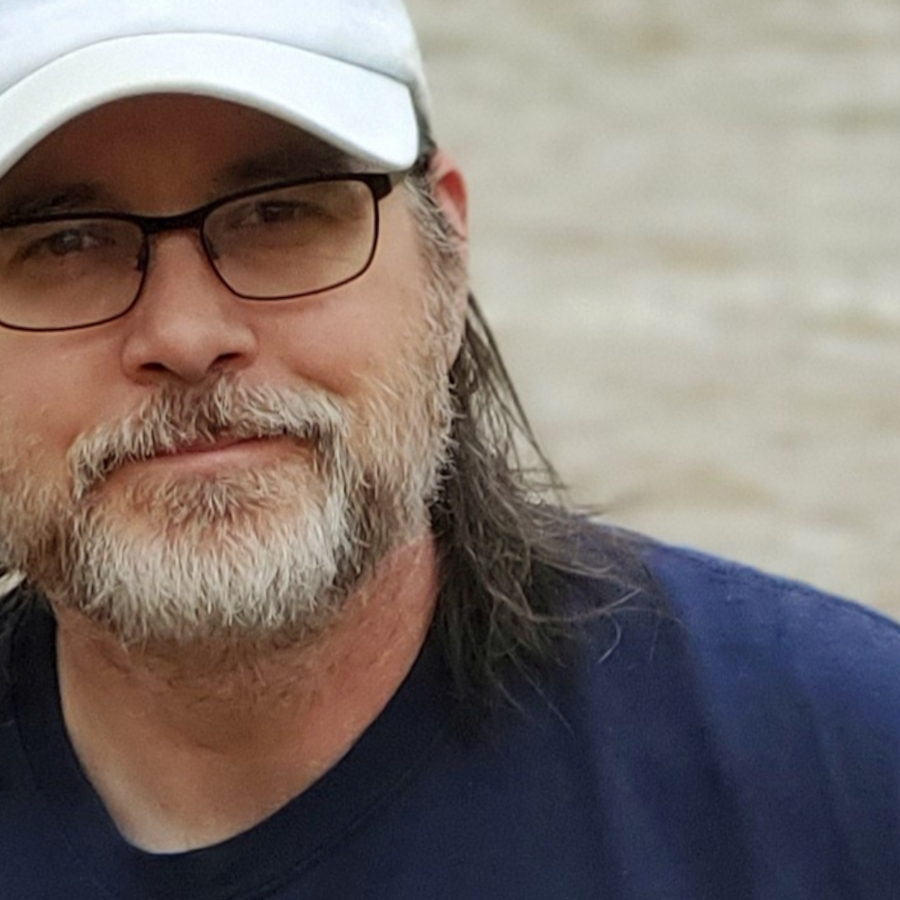
Benjamin X. Wretlind
Is formal university or college training needed for someone who intends to be a successful writer?
While formal writing programs offer valuable training, they are ultimately optional for authorial success. Self-taught indie authors can also thrive through dedication to their craft and embracing innovation independently. Raw inspiration and authentic vision matter most.
Does a university degree in writing give an author a leg up on success, or stifle their creativity?
When it comes to creativity and originality, indie authors have innate advantages. Unconstrained by legacy publishing gatekeepers or rigid academic program standardization, indie writers are free to manifest their unique creative identities and follow their artistic muse intuitively. This resonates with readers who crave authenticity, not some formulaic convention. The bourgeois should not tell the proletariat what to read. Hasn’t this point been made enough? Fundamentals still matter, of course—even mavericks refine technique over time through practice and feedback. But rules should guide, not limit, bold creative expression.
Does a lack of professionalism in their writing hurt a new writer? Does it take them longer to look professional without the formal training?
Regarding writing quality and professional polish, indie authors and formally trained writers both have pros and cons. Without structured guidance, indie works often seem less refined initially. However, the most dedicated learn by doing, improve through reader reviews, and take risks. Whereas publishing houses favor trope-laden and sickeningly pedestrian writing with broad commercial appeal over daring outside-the-box works with actual substance. So while conventions serve a purpose for clarity, highly stylized rules also constrain voices that don’t conform. It becomes an exclusive industry, not an inclusive one, and therefore fails tests of diversity and equality every day.
Does a great imagination balance a less than stellar delivery of the story? Can formal training fix both?
In the end, great writing emerges mysteriously from some ineffable combination of talent, dogged persistence and luck—formal credentials be damned. Boundary-breaking indie authors succeed by pioneering new platforms that skirt around conventional gatekeepers, and hungry niche audiences eagerly await writers who speak their language. Savvy social media fluency certainly amplifies buzz today, but viral fame is not essential. What matters most is that indie authors stay radically true to their creative core, where their most powerful voice lives.
How much do the publishing industry’s business practices affect a non-trained author’s success? Is the formal university training a match to the current publishing industry? Do agents favor formally trained authors?
Legacy authors will always have prestige, but indie writers are claiming more influence every day thanks to publishing’s slow demise. It’s like an upended goldfish that doesn’t know it’s dead yet. Arguments against this come from the inside, not without.
Bio: Benjamin X. Wretlind is a speculative fiction author who writes science fiction, dark fantasy, magical realism, and some horror. He is the author of several novels, novellas, and creative writing books and is a full member of the Science Fiction and Fantasy Writers Association.
Book 4 of the Transit series: The Widening Gyre When Abel, exiled from the Col’kasid, is discovered by a scout team from an unknown tribe, he finds himself embroiled in a struggle for peace. Together with Kaius, a New Emilian who understands the past, and Gideon, the great-grandson of the founder of the Col’kasid, they face a daunting task: bridging the divide between two societies with vastly different beliefs and histories.
The Aebris Rising series; While fishing on the watery planet Minor Pales, Levi Hurley finds an alien who claims to be from the impossible island of Aebris. Rather than throw his odd catch back, he smuggles the creature onto the Amesware Abyss, a prison mining rig.
Benjamin’s works include non-fiction such as Creating Atmosphere with Atmosphere: How to Use Weather as a Literary Device.
Some Ideas For What to read Next
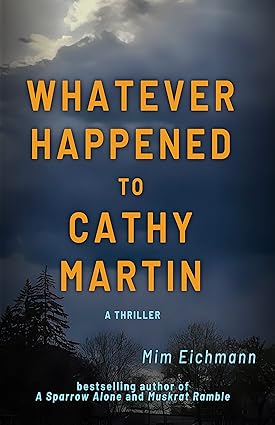
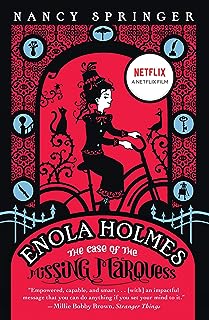

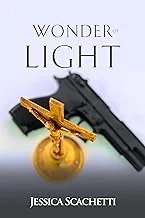
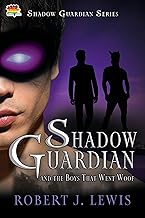
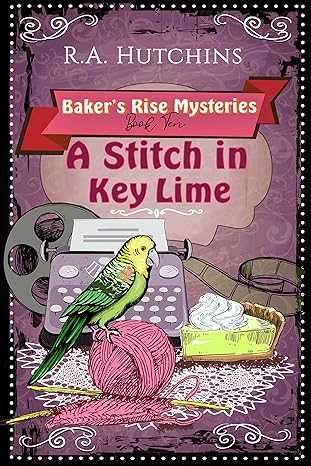
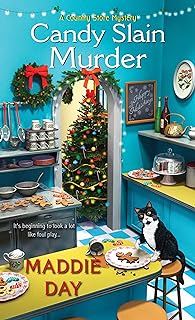
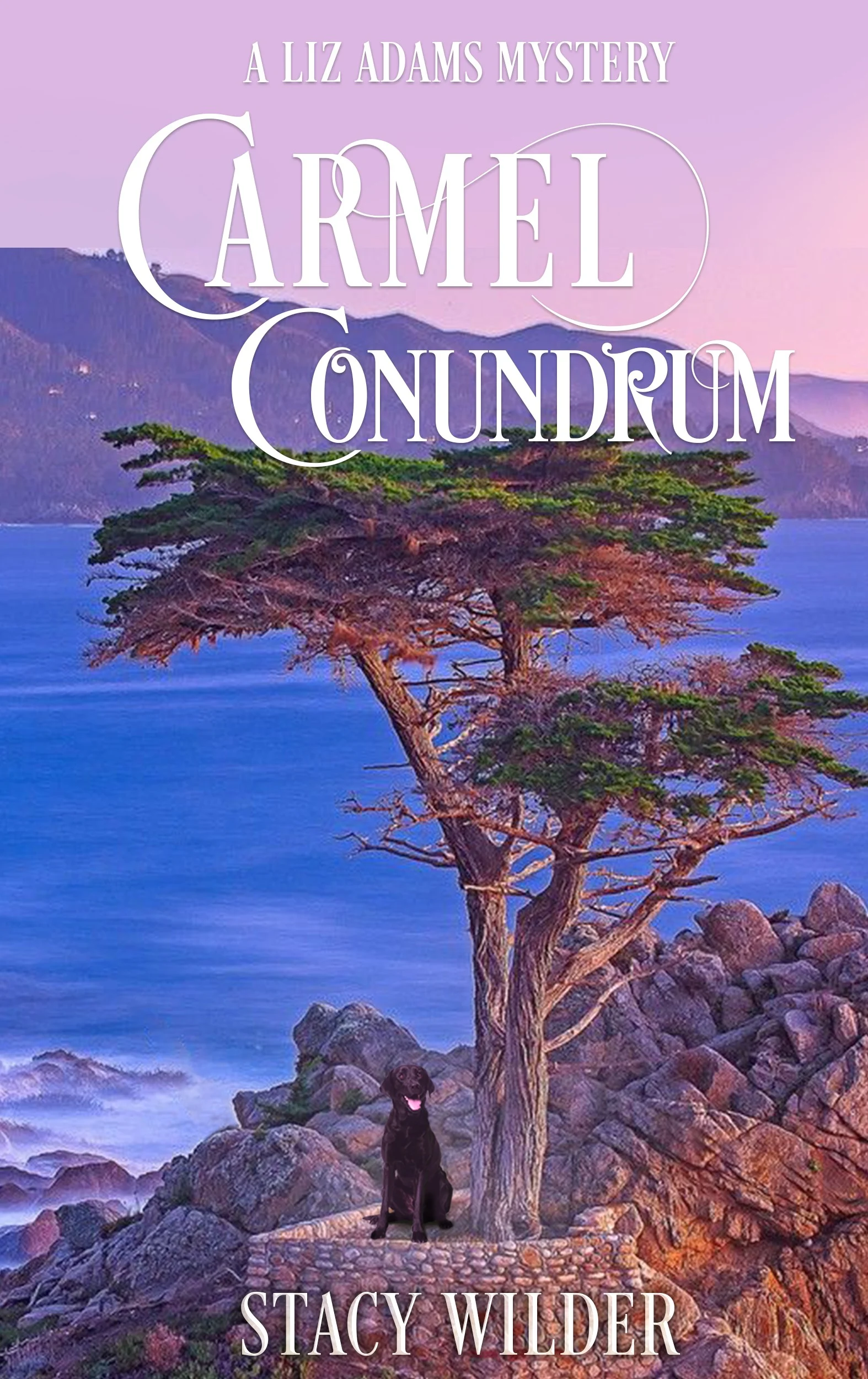
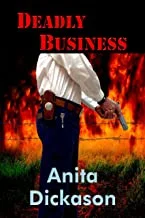
The Celwyn Series YouTube channel
What is new with the Celwyn Series?
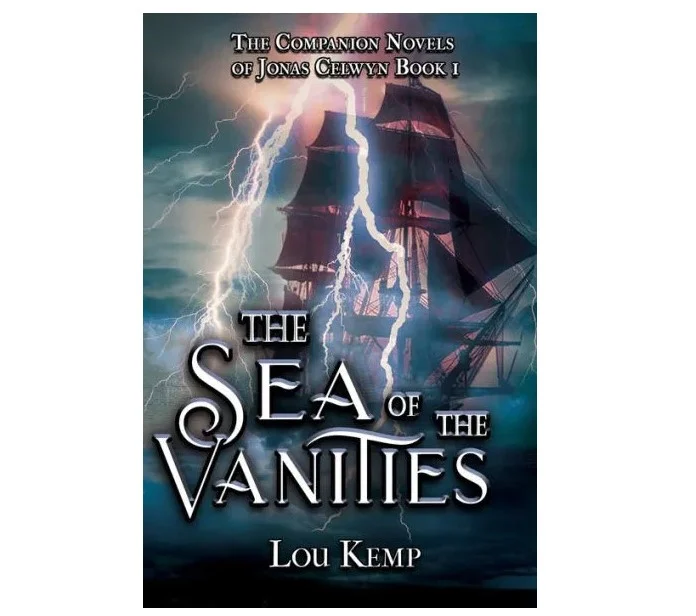
What is new?
The basic first draft of book 7 is complete, and now the endless, really endless, editing begins. The first phase is a once through check for what is missing and obvious mistakes. Next will be adding in parts missing in scenes, and maybe a chapter or two. Then the reverse, eliminating things that are not needed. None of the major characters dies this time, but there are some close calls and new additions. By this time next month I hope to have the handwritten draft transcribed into digital format and not have a screaming fit while trying to shake the voice activated software out of my pc.
The title for Book 7 is Lucky and Mrs. Nemo. For now, the mini-synopsis is: Swango is still traveling with them on the Nautilus, and his flamboyant and rude tendencies remind everyone alternately of Celwyn or Pelaez. He is not as irritating as Pelaez (who he hasn’t met yet) and mostly means well. But, his way of participating is unusual and never planned. After attending to a deadly assault on Findbar Island, the adventurers leave for Spain to confront Doctor Lazlo and Mrs. Nemo, and when Tellyhouse is threatened, they return to Prague. Things shift again, and the Nautilus races west and for Kang’s sake, Celwyn hopes they arrive in time.
About the Series:
The Celwyn Series is a steampunk fantasy filled with murder, mystery, and magic. The series stars the immortal magician Jonas Celwyn , Bartholomew the widower from the Sudan, and Professor Xiau Kang an automat who is also a doctor and scientist. As they travel the world they become part of the Nautilus and Captain Nemo’s adventures.
If you’d like a bulleted synopsis of any of the first 4 books of the series, please contact me at: https://loukemp.com/
If you have a comment on the newsletter or would like to participate in the Author Debates or the ongoing article “A Readers Point of View” in future issues, contact me there.
Synopsis Book 6. Swango, available mid 2024
The story begins in Hong Kong after Celwyn, Bartholomew, and Professor Kang are attacked. The identity of their assailant is interesting; and it portends an event that will challenge them all.
Pelaez is back, which makes life aboard the submarine rather tense while everyone tries to kill him. Before they can leave Hong Kong, the magician uses a unique method to retrieve half of Captain Nemo’s crew from their shore leave before they are killed. Months later, when Celwyn and company arrive in Prague they must bury one of their family who has been cruelly murdered.
From there, the adventurers reboard the Nautilus to travel to the Castell de Ferro in Spain. They expect a dangerous and supernatural reception and need more protection than what Celwyn can provide. At the magician’s suggestion, they plan to invite his acquaintance, Swango, aboard. Captain Nemo suspects Swango may be an asset, but the man also brings much more than assistance onto the ship.

For months, I’ve been volunteering with the non-profit group Engin to help Ukrainians speak and write English.
No degree needed, or experience. Just an hour a week per student you want to help. The sessions are over Zoom. Engin supplies support and everything you need. Engin is a non-profit, and donations are always welcome. My students waited more than 8 months for a volunteer, and still others are hoping for a volunteer match soon.
If you can donate or volunteer, even for an hour a week, they would be so happy to hear from you: [email protected]
An Interview with an Engin Volunteer
Beverly, a volunteer from New York City, has been with Engin for about 5 months. The non-profit teaches Ukrainian citizens to speak English.
What do you get out of volunteering with Engin? Do you learn things about Ukraine?
I get the satisfaction of feeling that I am helping someone achieve their goal as well as the great pleasure of developing a friendship. As a retiree, developing useful lessons also helps me maintain my mental faculties!
Yes, I do learn about Ukraine—inadvertently. My student prefers not to talk about the war but we do talk about her life—and that is daily life in Ukraine.
Do you have to be a teacher to volunteer, or just have common sense and a good grasp of English?
No, you don’t have to be a teacher. I am not a teacher. Common sense and a good grasp of English are very useful.
How often do you meet with your student, and how long are the sessions?
We meet once a week for an hour. Sometimes the lessons extend beyond the hour if we have the time and the lesson seems to require it.
Does Engin provide support for lessons and questions?
Yes. Engin is very supportive.
First, its volunteers go through a virtual training program which provides the basics for how it all works. It is sensitively designed and answers most questions. Engin has a series of handbooks that reinforce what you’ve learned in the training program. It also, importantly, offers many lesson plans, some quite elaborate, with articles, games, videos and YouTubes that you can share with your student. You are not obliged to use these lessons, but they are there should you want them.
Engin also offers “mentors” for volunteers—these are experienced volunteers whose very experience with Ukrainian students help to clarify potential issues. They can also prompt your own creativity in developing lessons. Engin uses YouTube and other on-line programs to help with technical issues.
But if you have a specific question, you are encouraged to write directly to the program and you will get a response generally within a week that answers most questions. Engin has a series of handbooks that reinforce what you’ve learned in the training program. It also offers lesson plans, some quite elaborate, with articles, games, videos and YouTubes that you can share with your student. You are not obliged to use these lessons, but they are there should you want them.
Engin also offers “mentors” for volunteers—these are experienced volunteers whose very experience with Ukrainian students help to clarify potential issues. They can also prompt your own creativity in developing lessons. Engin uses YouTube and other on-line programs to help with technical issues.
If you have a specific question, you are encouraged to write directly to the program and you will get a response generally within a week.
Shameless Buy Links
The links below lead to booksellers who carry the Celwyn series.
The Violins Played before Junstan book 1
https://books2read.com/celwyn01
Music Shall Untune the Sky book 2
https://books2read.com/celwyn02
The Raven and the Pig book 3
https://books2read.com/celwyn03
The Pirate Danced and the Automat Died Book 4
https://books2read.com/celwyn04
The Sea of the Vanities. Companion book.
https://books2read.com/celwyncompanion01
The Wyvern, the Pirate, and the Madman Book 5 https://books2read.com/celwyn005
